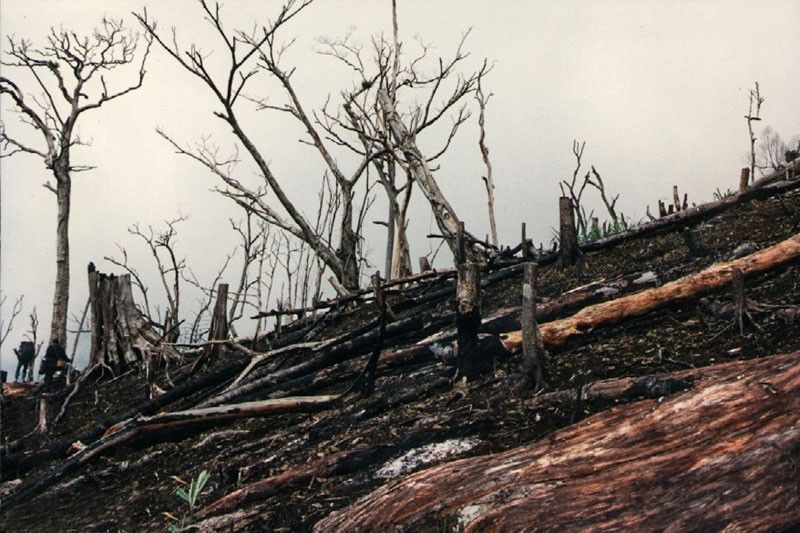Australian bushfires a warning for Philippine to protect climate

The Australia bushfires serve as a warning for countries to accelerate the phaseout of fossil fuels and scale up climate action, according to local environment advocates.
“We have a moral responsibility to our common dreams for our families for a safe and secured life at present and the future. This comes with the assurance of sustaining ecosystems,” said Rodne Galicha, executive director of Living Laudato Si Philippines, a faith-based non-government organization.
Prolonged droughts and record-breaking temperatures intensified the fires that have burned more than 10 million hectares of land mostly in the Australian outback, killing around one billion animals and driving species to near extinction.
Galicha remarked that climate-related disaster has impacts beyond Australian biodiversity and communities. He added that preventing disasters of this magnitude “require global holistic action beneficial not only to a particular race, not only to humanity but the planet as a whole.”
Global and local leaders must recognize the urgency for mitigating climate change to prevent similar incidents in the future, he said, expressing disappointment on the outcomes of the recent climate talks in Madrid, Spain. “Denial of the climate crisis is the denial of humanity’s future existence,” he said.
Despite the warning of scientists for drastic emissions cuts to limit global warming by 2030, there was a lack of significant progress made in Madrid. Key calls including raising targets for climate change mitigation pledges, strengthening mechanisms to avert loss and damage, and rules for the global carbon market fell through in the negotiations.
Thaddeus Martinez, veteran forester from the Haribon Foundation, emphasized that governments must look beyond the short-term benefits of fossil fuels on economic development. He said “it is not just the economic production supported by this power generation that needs to be examined, but also the impacts on us. Renewable energy power generation will be more appropriate.”
Forest fires in Phl
The Philippines is not at risk of forest fires in the scale of Australia’s, according to Martinez. However, global warming could increase the occurrences of small forest fires that would have devastating effects on ecosystems and nearby communities.
While the country lacks recent data on forest fires, Martinez observed from anecdotal evidence that climate change has made forests more vulnerable. “There is the same case of fire, but given that we have climate change, we can say that there are more hazards now compared to the previous decades,” he said.
Around 90 percent of all forest fires in the Philippines are caused by human activities, such as the kaingin or slashing-and-burning of forests to create more agricultural lands, he said. This, however, has long been rendered illegal under the Forestry Reform Code of 1975.
Martinez noted the Cordilleras and the Zambales mountains are two sites most prone to forest fires. Around 797 hectares of forestlands were destroyed from January to March 2019 in the Cordilleras due to kaingin, causing nearly P21 million in damage.
These cases, according to Martinez, show that nearly all the causes of forest fires, whether directly through kaingin or indirectly through climate change impacts, are ultimately anthropogenic. “Maybe there are some social aspects that we need to look at. Why are some people deliberately causing the fire? It’s not only the natural causes, but it’s anthropogenic as well,” he said.
To avoid this, Martinez highlighted the need to empower local communities to protect the forests. By educating them about forest-related laws, climate change, burning of fossil fuels and the importance of biodiversity, he hopes that the people would “have a true and deep concern for the environment.”
He noted one of Haribon’s rain forestation sites in Mt. Banahaw-San Cristobal was burned down last April. The three farmers responsible for the fires have been apprehended and would be trained to help restore the forests, in collaboration with the local community and government agencies.
Martinez also urged an increase in capacity and resources of the Bureau of Fire Protection, which is legally mandated to handle forest fires.
He said the Philippine government must lead the way in phasing out coal plants and coal-mining operations on the domestic front as actively as it campaigns for it in the climate talks. This is to avoid adding forest fires to the growing list of hazards that one of the most climate vulnerable countries must deal with.
“If the people seated in government are the ones advocating for these coal-fired power plants, what is the return for us?” he said.
- Latest































